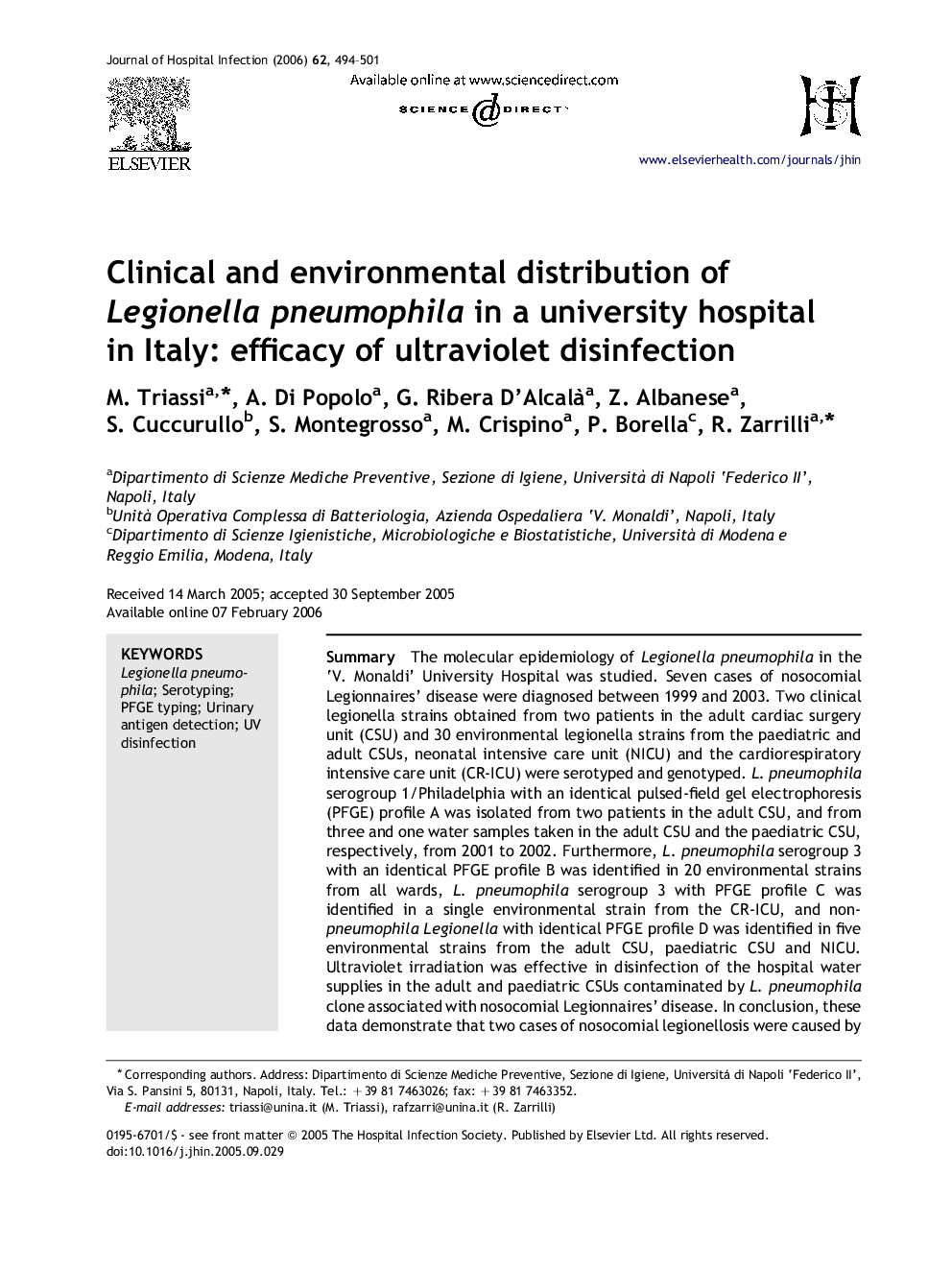| Article ID | Journal | Published Year | Pages | File Type |
|---|---|---|---|---|
| 3374236 | Journal of Hospital Infection | 2006 | 8 Pages |
SummaryThe molecular epidemiology of Legionella pneumophila in the ‘V. Monaldi’ University Hospital was studied. Seven cases of nosocomial Legionnaires' disease were diagnosed between 1999 and 2003. Two clinical legionella strains obtained from two patients in the adult cardiac surgery unit (CSU) and 30 environmental legionella strains from the paediatric and adult CSUs, neonatal intensive care unit (NICU) and the cardiorespiratory intensive care unit (CR-ICU) were serotyped and genotyped. L. pneumophila serogroup 1/Philadelphia with an identical pulsed-field gel electrophoresis (PFGE) profile A was isolated from two patients in the adult CSU, and from three and one water samples taken in the adult CSU and the paediatric CSU, respectively, from 2001 to 2002. Furthermore, L. pneumophila serogroup 3 with an identical PFGE profile B was identified in 20 environmental strains from all wards, L. pneumophila serogroup 3 with PFGE profile C was identified in a single environmental strain from the CR-ICU, and non-pneumophila Legionella with identical PFGE profile D was identified in five environmental strains from the adult CSU, paediatric CSU and NICU. Ultraviolet irradiation was effective in disinfection of the hospital water supplies in the adult and paediatric CSUs contaminated by L. pneumophila clone associated with nosocomial Legionnaires' disease. In conclusion, these data demonstrate that two cases of nosocomial legionellosis were caused by the persistence of a single clone of L. pneumophila serogroup 1/Philadelphia in the hospital environment, and that disinfection by ultraviolet irradiation may represent an effective measure to prevent nosocomial Legionnaires' disease.
